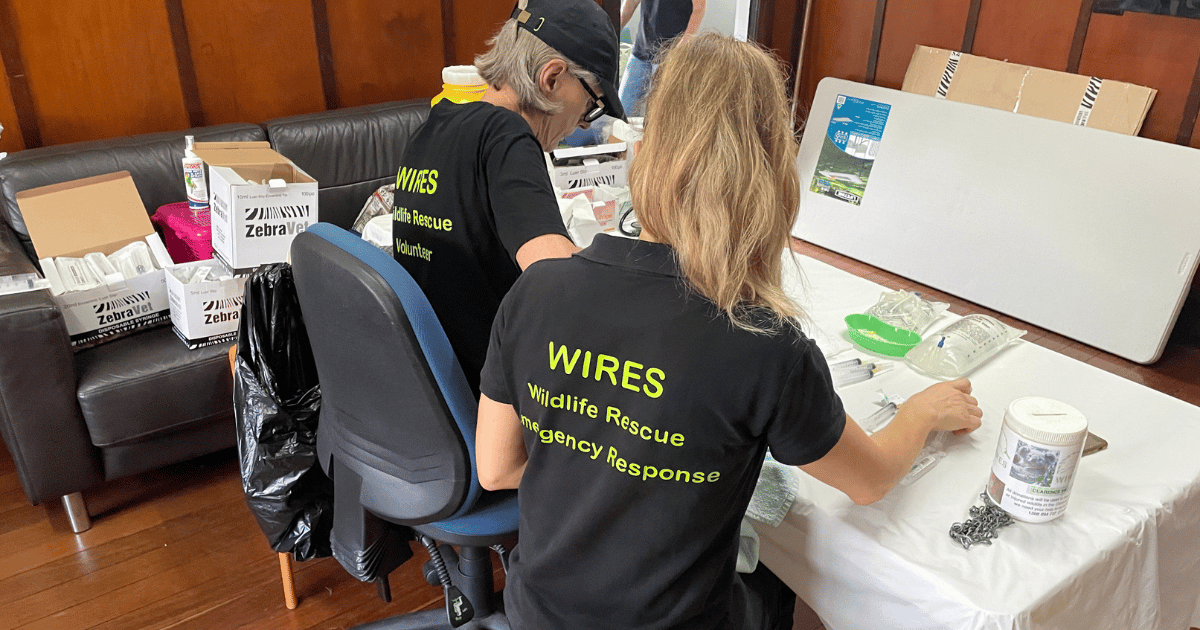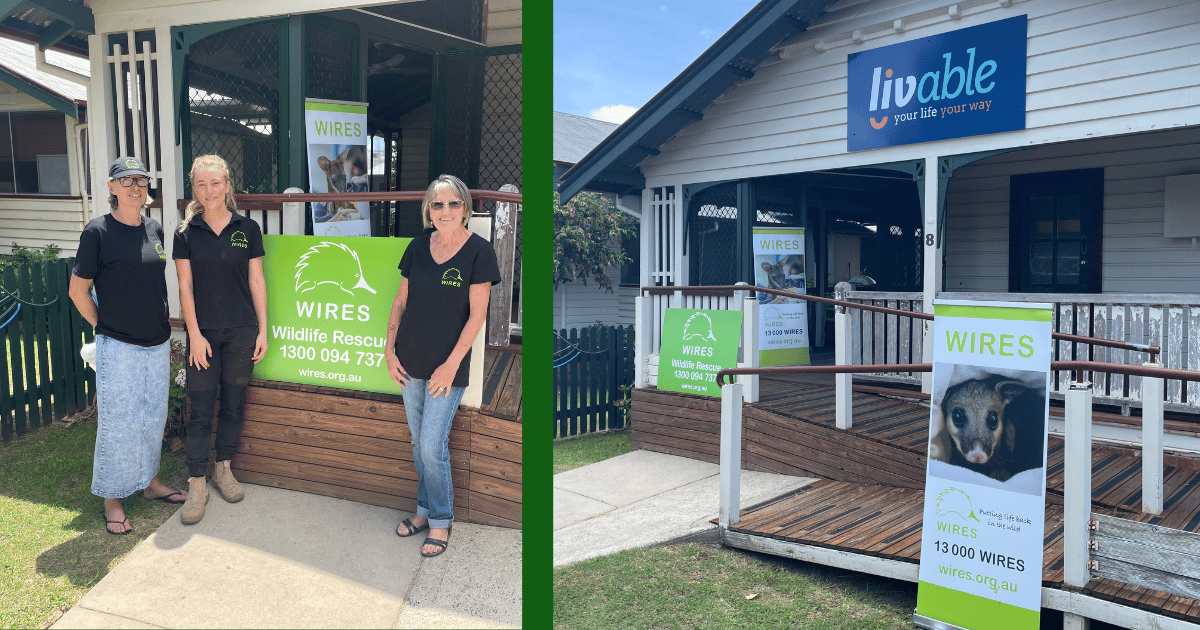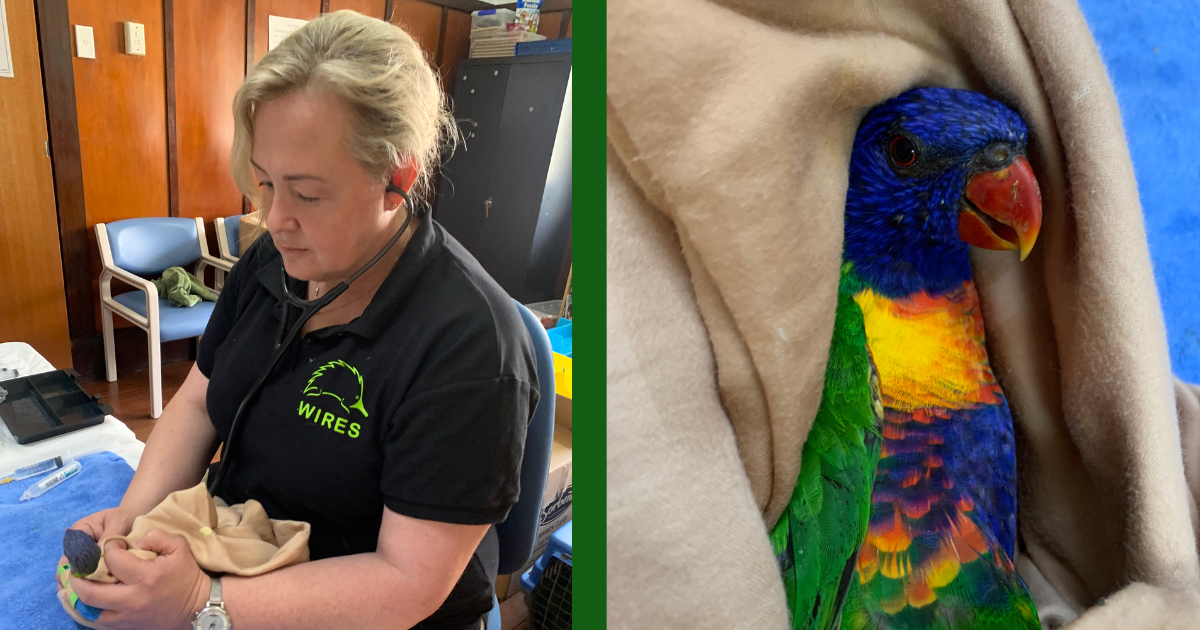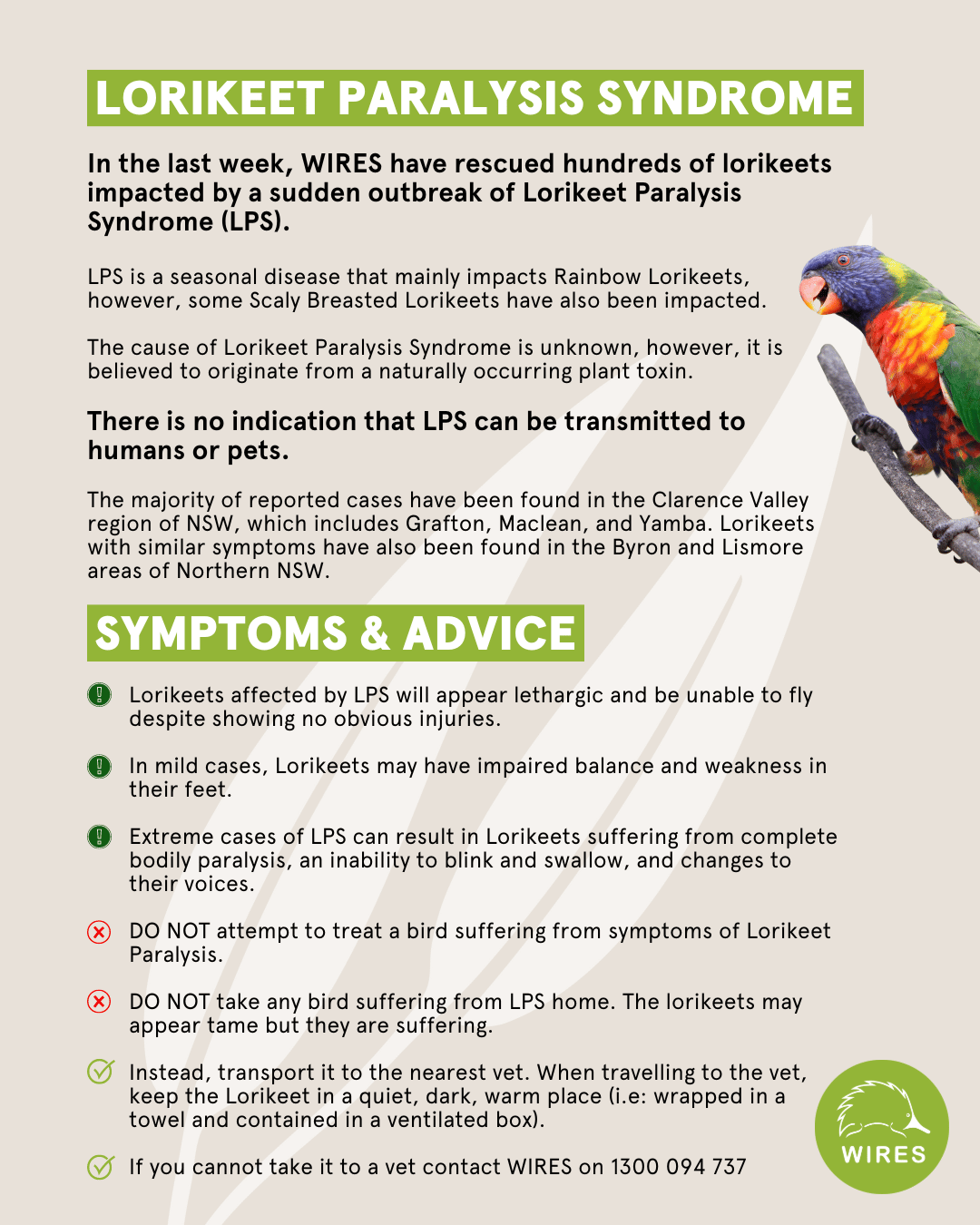
WIRES launches Emergency Response to assist massive numbers of LPS affected Rainbow Lorikeets
Thursday, February 8, 2024
WIRES (Wildlife Information, Rescue, and Education Service) is urgently addressing the escalating Lorikeet Paralysis Syndrome (LPS) emergency in northern regions of NSW, which is affecting hundreds of lorikeets daily. WIRES estimates that LPS in the region has now affected thousands of birds.
To help cope with the numbers of affected birds being found by rescuers and the public, WIRES has set up a Lorikeet Drop-Off Point at 8 Kemp St, Grafton. The centre is open daily from 9 am to 4 pm, including weekends, with WIRES wildlife vet Dr Tania Bishop on site to provide immediate assessment, triage and treatment.
According to Dr Bishop, the centre opened yesterday and received 91 cases of affected birds on its first day of operation.

“We are extremely grateful to the concerned members of the public bringing birds in for assessment and to the local vet clinics for helping to share the load,” said Dr Bishop. “The sooner an LPS affected bird gets an assessment, the better their chance of survival, and we couldn’t save them without the much appreciated assistance of the community.”

WIRES has also deployed an Emergency Responder from the north of the state to Grafton, along with three additional emergency Responders and Wildlife Ambulances that have travelled from the greater Sydney region to assist in rescue, transport, and immediate care. WIRES has activated its Disaster Relief team to assist members needing urgent resources.
Since the first build-up of cases that came in three weeks ago, WIRES dedicated volunteers and local veterinarians have been managing this crisis, including rescuing, evaluating, and providing immediate care and rehabilitating affected lorikeets. The WIRES Emergency Response team continues to liaise with veterinary practices, EPA, Wildlife Health Australia, RSPCA, and Vets Beyond Borders to address this challenging event.
LPS primarily affects wild rainbow lorikeets, causing paralysis and an inability to fly. The cause of LPS remains unknown, with ongoing research aimed at identifying the causative agent, which is potentially linked to the ingestion of a toxic plant.
The disease is seasonal between October and June, with the highest number of cases from December to February. Despite the significant number of reported cases, the actual impact may be more significant due to mass collection and drop-off to veterinary clinics.
Members of the public encountering lorikeets suspected of LPS are urged to follow guidelines provided by WIRES, including cautious handling, suitable container use, and refraining from giving food or water during transport.
WIRES also thanks the local veterinary clinics, especially the Grafton Veterinary Clinic, for their tireless efforts in treating affected lorikeets. An admission spreadsheet for tracking birds and sharing data to aid in tracking the outbreak has been provided.
Anyone witnessing lorikeets displaying symptoms of LPS, please contact the WIRES 24/7 Rescue Office at 1300 094 737.
What: WIRES Lorikeet Drop-Off &Triage Centre
Where: 8 Kemp St, Grafton
When: 9 am to 4 pm daily, including weekends
For further information, please contact:
John Grant
WIRES Media
Email: wiresmedia@icloud.com
Phone: 0412 300 328
About WIRES
WIRES (Wildlife Information, Rescue, and Education Service) is Australia's largest wildlife rescue organisation, dedicated to rescuing and rehabilitating native animals. With a network of trained volunteers, WIRES works tirelessly to respond to wildlife emergencies, promote community awareness, and contribute to conserving Australia's unique fauna. For more information, visit www.wires.org.au.

Recent Posts
Statement from WIRES regarding recent animal cruelty case
Walk on the Wild Side this April
WIRES Giving Day raises funds to feed the influx of Spring and Summer rescues
WIRES launches Emergency Response to assist massive numbers of LPS affected Rainbow Lorikeets
Platypus & Plains-wanderer protection
Third Round of WIRES National Grants Opens in July
WIRES Northern Rivers & Clarence Valley welcome new Emergency Responder and Wildlife Ambulance
Birds exposed to Fenthion released back to the wild
Contact media@wires.org.au for enquiries or call 0416 272 153.
For the latest updates on bushfire recovery projects and emergency response
Read WIRES Emergency Recovery Plan and WIRES National Emergency Response Plan
